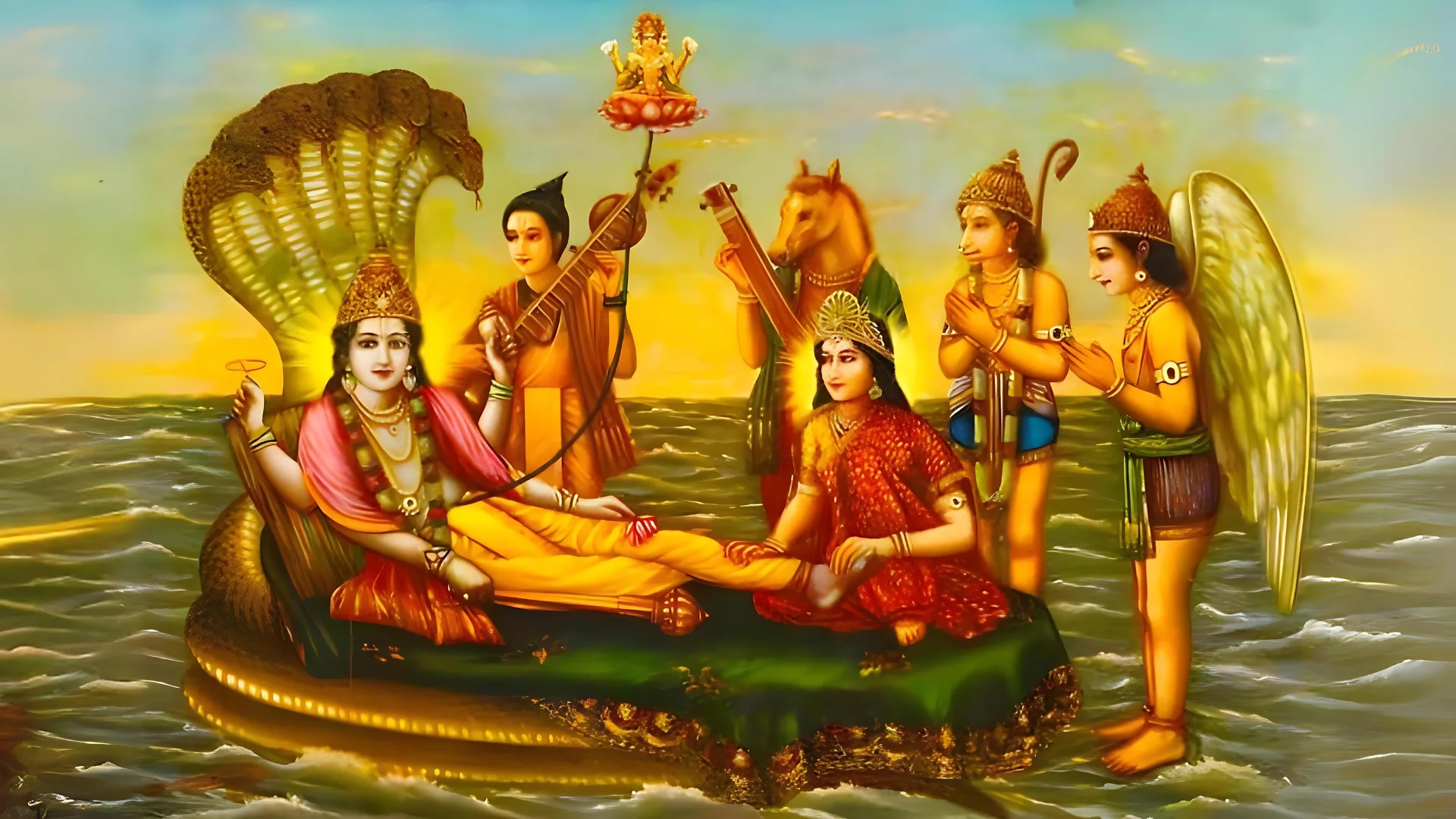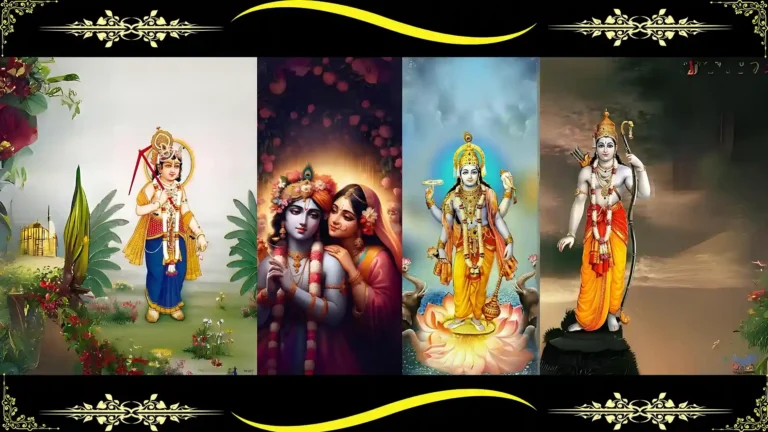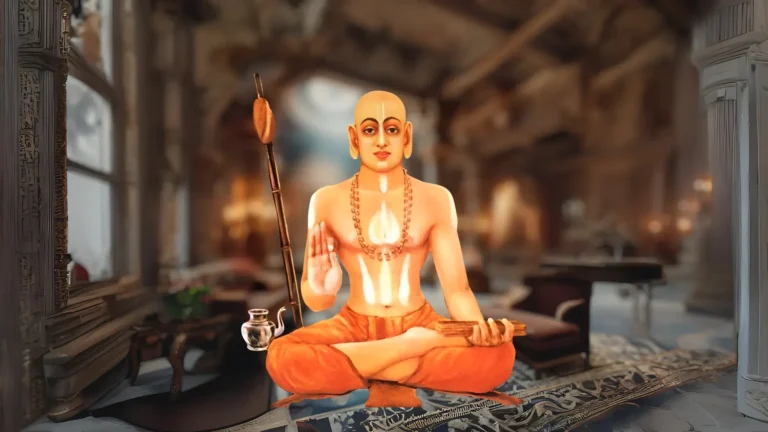Please Like the Blog and Share it for Maximum Reach
Table of Contents
Jnana without Bhakti holds No Charm
A Jiva who attains Emancipation through the path of Jnana may be a great thing, but we can never compare it to the illumination of Love of God, in the heart. An analogy will deliver the point that I am trying to make. It is only a mustard seed (emancipation through Jnana) when compared to Mount Meru (analogous to Bhakti).
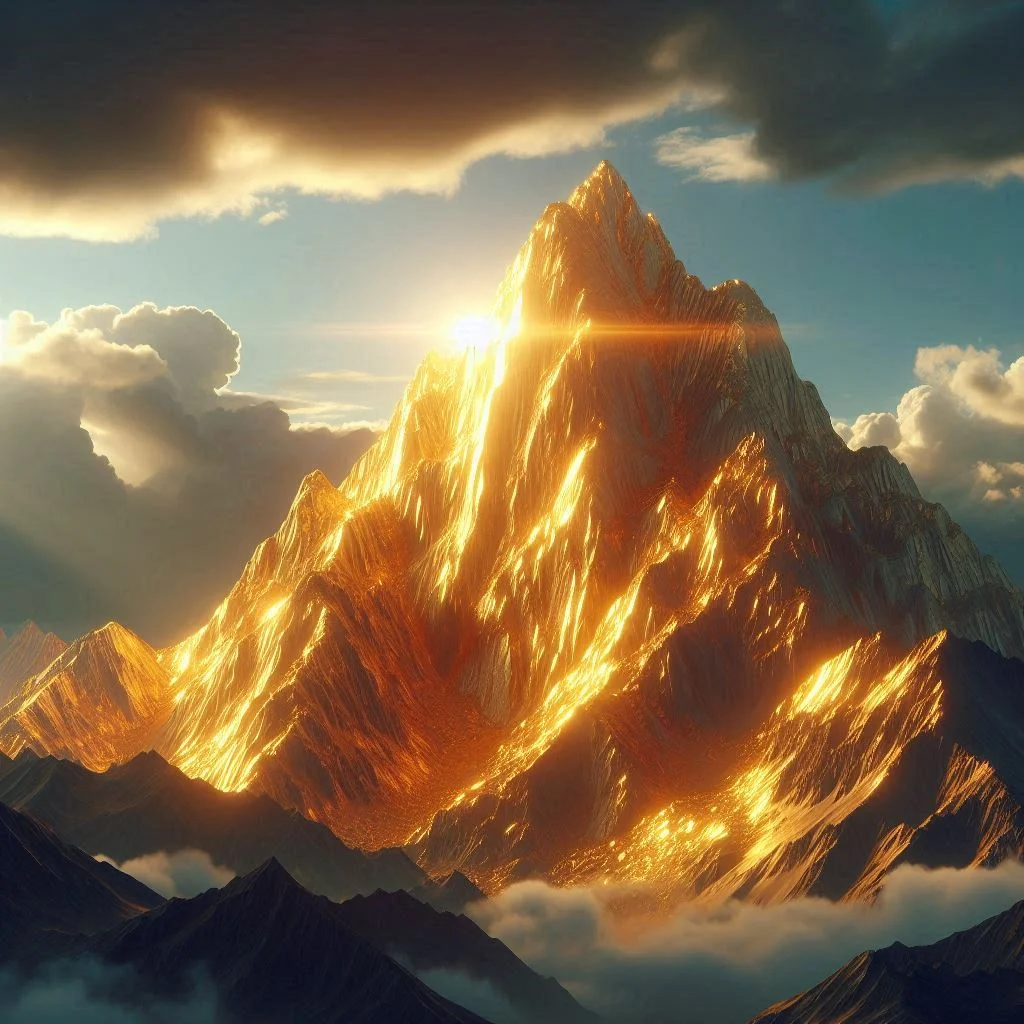
The Shvetashvatara Upanishad, proclaims “I have realized the transcendental Personality of Godhead, who shines most brilliantly like the sun beyond all darkness. Only by realizing Him, one goes beyond the cycle of transmigration.
Absolutely, there is no other means of God-realization. Become blessed and adopt the path of unalloyed devotion.” The Bhagavata says “Neither Brahmana hood, God-ship, becoming a Rishi, attaining nobility, doing charity, worship, and sacred vows are conducive to please Mukunda, Sri Krishna. Only unalloyed devotion to Him, can propitiate Him.” At the very dawn of Bhakti, Jnana retreats, so says the Shastra.
The Four Kumara brothers taste Bhakti
An illustration of dawn of Bhakti is when the four Kumara brothers enter Vaikuntha. The fragrant aroma of the Tulasi leaves tinged with the pollens offered at the Lotus feet of the Lord, entered the nostrils of the four brothers, erstwhile Brahma Jnanis.
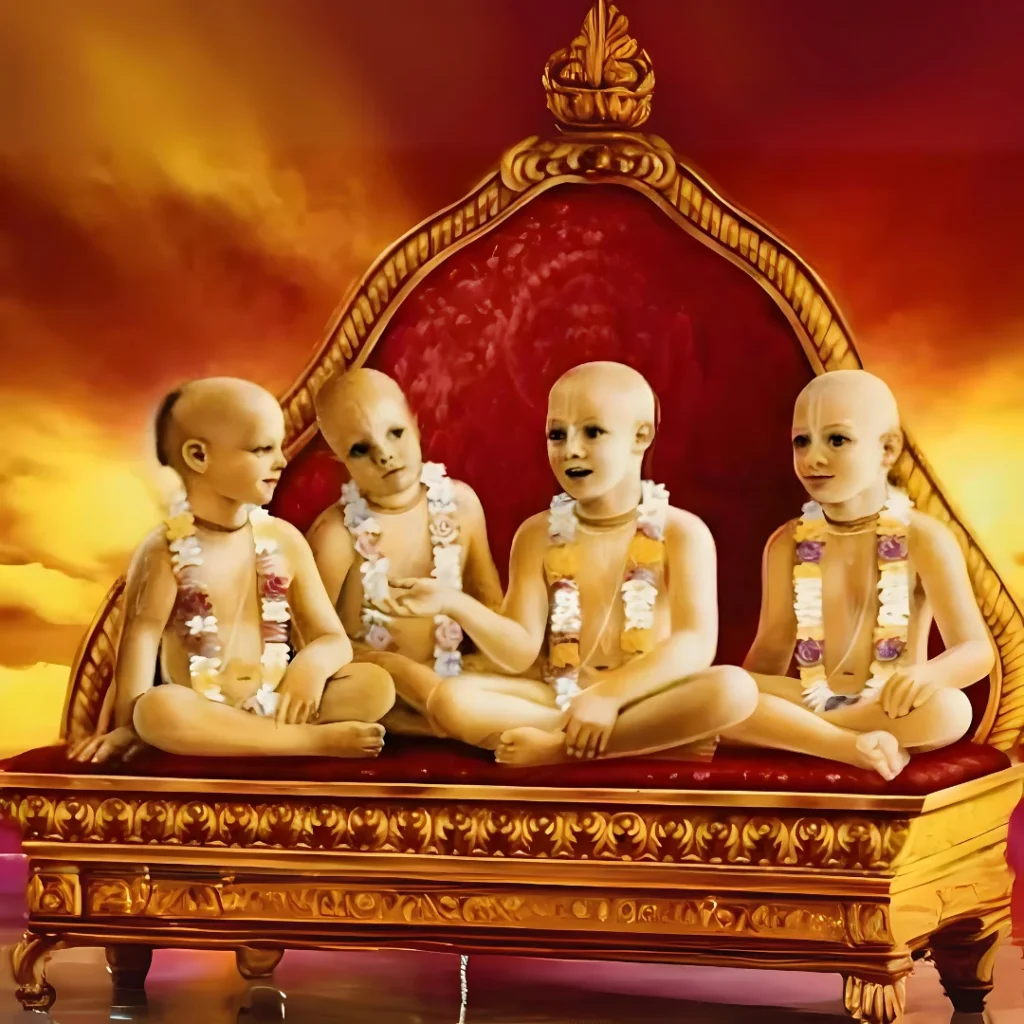
Earlier they, who engaged in Atma- ras (आत्म-रस Nectar of the Self) stood immediately absolved from Ati-Vidya (अति-विद्या), semblance of knowledge arising out of the realization of the Self and awakened to their dormant intrinsic nature of devotion, which got manifested at the very sight of the transcendental beauty of the Supreme Lord.
They felt a thrill, running down their spines and at once fell prostrated at the Lotus feet of the Supreme Lord.
Sriman Chaitanya Mahaprabhu about Bhakti
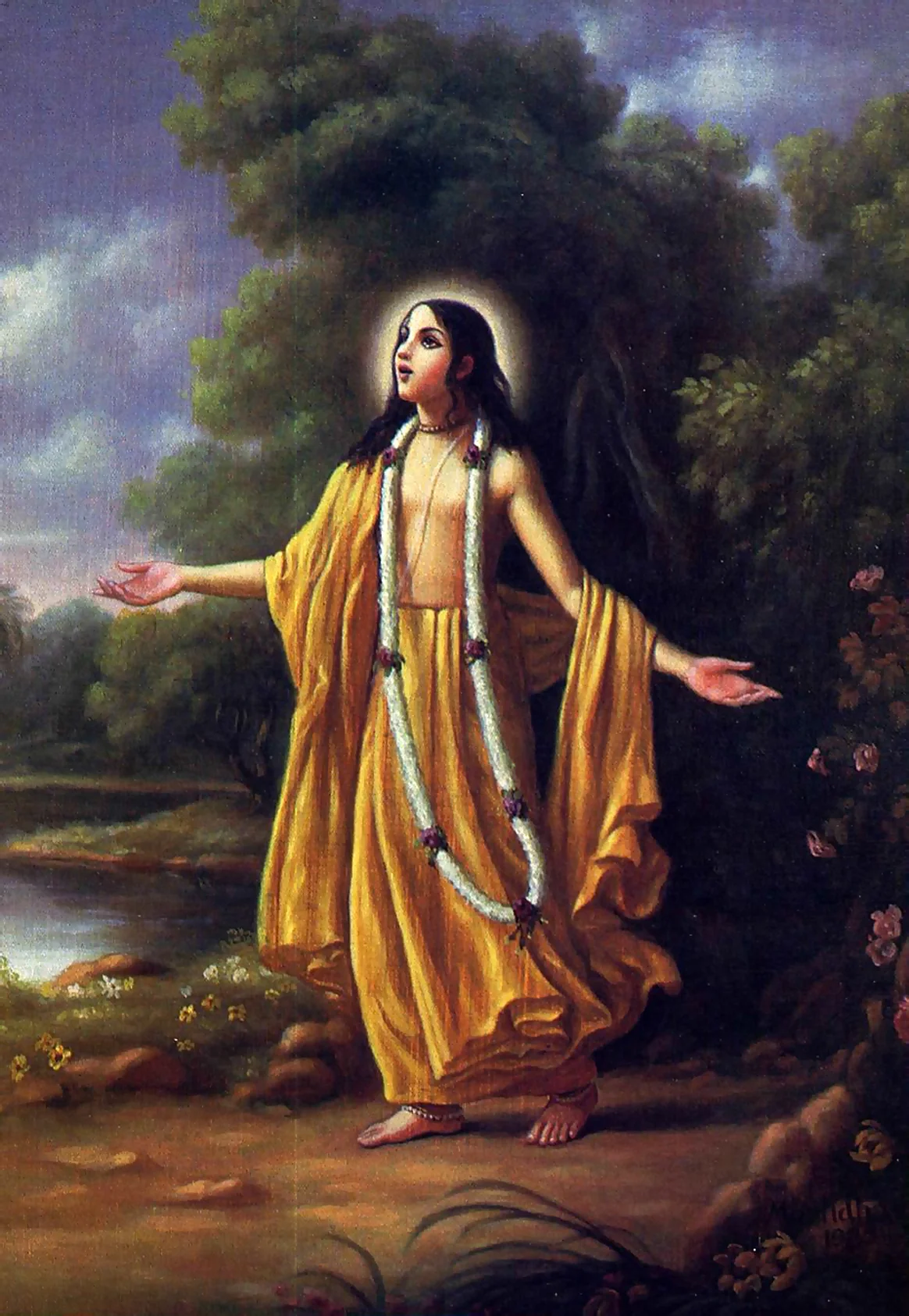
The Bhagavatham further explains, “Even sages who are atma-ramis (आत्मारामि lost in the Self’s bliss), who remain in a state of contemplation and equilibrium and who are free from any form of Maya, they too get magnetized with unalloyed loving devotion to Sri Hari, such an unstinted soul attains Parabhakti (पराभक्ति Unalloyed devotion to Hari).
In this context, the Kaliyuga Avatar of the Supreme Lord, Sriman Chaitanya Mahaprabhu says “Just as the foolish crow sucks the Nimba fruits (Neem tree fruit), while the cuckoo feeds on the mango blossom.
An unfortunate follower of Jnana Yoga, chews dry wisdom, while the pure devotee quaffs the nectar of Sri Krishna Prema (श्री कृष्ण प्रेम Loving devotion to Sri Krishna).”
The Lord, according to the Bhagavatham, is only pleased by devotion and not by any other means. The Lord says, “Unswervingly attached to me alone, thou shalt attain Me, in my blissful realm, as my devout servitor.”
Hatred has no place in Bhakti
In the Gita, Bhagawan, Sri Krishna says, “Steeped in nescience, people who are haughty, full of lust, anger and malice, hate Me. I hurl them into demoniacal wombs, in the world or Samsara.
They take up ignoble forms, quite incompetent to attain Me, they will take lower births. In some places Sri Narada says, people can attain God quicker through intense hatred towards Him. Some people misrepresent the statement. This statement of the great devotee Sri Narada has to be read in the proper context.
The Bhakti Shastras never promote such attainment through hatred. Even such hatred is possible through the will of the Lord, so that it assists His Leela. Such souls who support the mood of Lila are beings like Ravana, Sisupala, Kamsa, Dantavakra and others. They are eternal associates of the Lord and have displayed the qualities of hatred by the pure will of the Lord.

The Scriptures never recommend this position for people who are on the spiritual path. Such hatred, can never qualify as Bhakti and the Lord punishes such beings, because the Lord does not give Moksha to people who hate Him, because other than Ravana, Shishupala, Kamsa and others, no one else can qualify to extract Veera Rasa from the Lord, for His pleasure alone.
Materialistic people hate Bhagavan out of envy and do not qualify for Moksha at any cost and Maya Devi suffices to punish such souls and entangle them further into the whirligig of nescience.It is hence only recommended that one pursues loving devotional service and not anything else.
There is another type of sweet anger that attracts the Lord particularly, which He considers auspicious. That anger is that of the Vraja Gopis, whose love for the Lord has crossed all pinnacles.
Because of separation from the Lord, they may display extreme anger, but this anger is extremely rare to attain and the mature fruit of intense love and by no way a product of material anger born out of mundane hatred.
7/8 Questions from Sanatana Dharma
The scores generated in this Quiz may or may not be absolute. There may be right or wrong answers to each Question. A percentage towards 100 indicates that you are more aligned to the overall subject matter.
Nature of Raga and Anurag
Devotion as Raga or Anurag (attachment to God, and deep identification with the Lord and His activities) is an inalienable distinct natural quality of the Jiva, which we must not compare with selfish feelings, where the object attains one’s own interests.
Therefore, whatever does not conform to this definition of Bhakti, cannot qualify as unalloyed devotion. The Lord is only subservient, and captured by pure unalloyed devotion, says the Shastra.
Lord Chaitanya Mahaprabhu has defined Prema (Unalloyed devotional service to the Lord) as the Pancham Purushartha (पंचम पुरुषार्थ the fifth goal), beyond Dharma, Artha, Kama and Moksha.
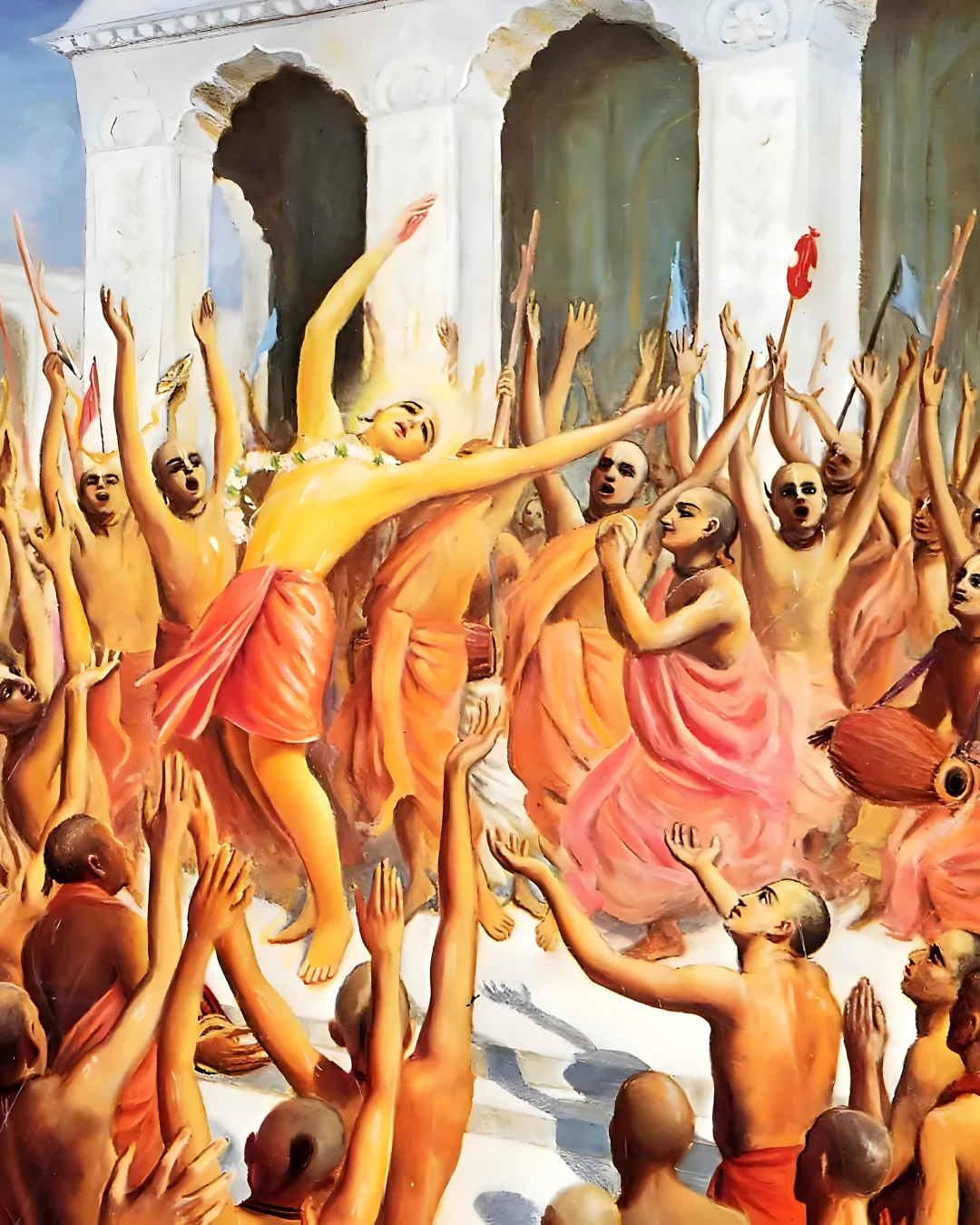
The one who yearns for Prema, even rejects Moksha, because he has transcended beyond the purity of even the Shastra, so says the Shastra. Lord Mahaprabhu says that the Brahmananda (ब्रह्मानंदा Joy derived from the knowledge of Brahman) of the Jnanis is not even a millionth of a drop compared to the shoreless ocean of the nectarine loving devotional service to Sri Krishna.
The Touchstone Called Parama Bhakta or Pure Devotee
A person can consider that by the will of Providence, when one comes in contact with an exalted Parama Bhakta or pure devotee (परम भक्त supremely elevated) of the Supreme Godhead, he blesses one with devotion, by his mere presence, which is the natural characteristic of the Jiva, which so long, remained dormant because of one’s aversion from God.
A cruel hunter like Ratnakar, became a Parama Bhagavatha by the dint of the causeless mercy of a sage like Deva rishi Narada. Such Maha Bhagavatha(s) are like the philosopher’s stone, that by its touch alone, iron transforms into gold. The aspect of Ananda in the Supreme personality is called Hladini Potency, which causes spontaneous Bliss both to Himself and His devotees.
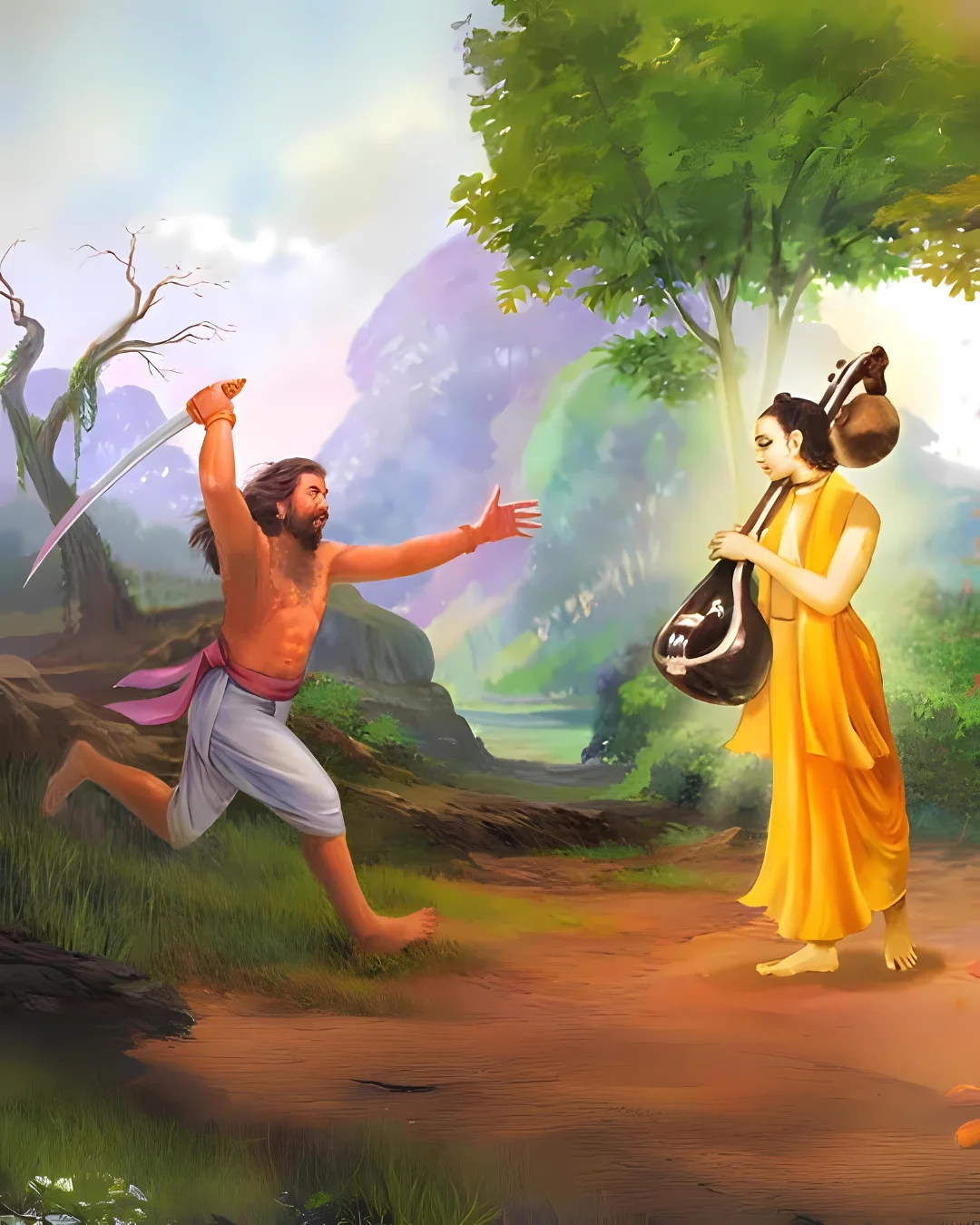
The causeless case of Bhakti is a matter of grace of the exalted devotee, the result of Hladini potency. A deer, after quenching its thirst, gets up from the pond, sees a hunter aiming at her, on her left, and a tiger ready to pounce on her, on her right, a burning forest fire and her back is the deep pond, where she quenched her thirst.
Such is the nature of the Jiva trapped in the world, like the deer, trapped near the pond. But there is a way above, where Hari waits, for her call.
On her call, there shall be a thunder-bolt bashed with storm and torrential rains, the tiger and the hunter shall run away, the forest fire extinguished by the rains, the deer has her ways opened up; she gets into the solace of the woods, in remembrance of the mercy of Providence.
Bhakti Sutras are the ripened fruits of the tree of Vedas
One of the imminent works in the Vaishnava world is that of the Pancharatra literature. Sage Shandilya authored the Shandilya Bhakti Sutra, a part of the Shandilya Upanishad. In this Upanishad, the sage exhorts that anyone who tries to delink the Pancharatra from the Vedas, becomes divorced to Vedic literature.
The Pancharatra is the ripened fruit of knowledge or the ontological aspect of the Vedas. The Pancharatra forms the basis of the Shandilya Bhakti Sutras. Hence these Bhakti Sutras are directly the ripened fruit of the Vedas. The Sutras convey the concept of Bhakti and in unambiguous terms state that Jnana is the loose flesh hanging from the neck of the goat and hence do not qualify to be the udders.
Knowledge which does not ripen, projects itself as this piece of flesh, which can serve no purpose at all. Bhakti is the natural characteristic of a free soul, who has ripened. By dint of one’ sukriti (सुकृति blessed actions done consciously or unconsciously towards the Lord or His devotees) and by Satsanga (सत्संग holy association with pure devotees of the Lord), Bhakti becomes manifest in a Jiva.
Jnana and Karma are subservient to Bhakti
Jnana may be a precondition to Bhakti, it is. Yet Jnana diverts itself from Bhakti in certain ways. Jnana requires endeavor, hard work and applied cultivation. But when Jnana matures, it transforms itself into Bhakti.
Bhakti is causeless, it simply manifests. Jnana is induced while Bhakti is deduced. Complete God realization can occur only through Bhakti. Jnana may be useful in knowing the Self, the nature of the world and all that is unreal or temporary. But through Bhakti alone, one can connect with Absolute Reality, God.
Sage Shandilya insists that even attainment of Nirvikalpa Samadhi (निर्विकल्प समाधि), is a secondary aspect to Bhakti. Without Bhakti, even Samadhi is of no avail. Attachment to asat (असत) is the gateway to transmigration whereas attachment to sat (सत) gets the reward of Anurag (अनुराग), deep loving attachment to Uttama Purusha (उत्तम पुरुष), the Supreme Personality.
In the Sutras, the second chapter begins with “The path of Jnana and Karma (Yoga) are to be followed till one’s heart remains sullied with materialism, the belief that one needs to work and earn, that the material world is real and the belief that one needs to maintain oneself through activities related to the material world.
However, with the dawn of Shraddha, a prerequisite of Bhakti, this fear of the material world starts disappearing. Then Karma and Jnana remain as a vestige, but they happen under the auspices of Bhakti alone. When Bhakti takes root, Jnana and Karma remain completely subservient to Bhakti.
Bhagawan is Vibhu while Jiva is Anu
Bhakti is the unbreakable relationship of the Jiva with Godhead. This the Vedas establish and also the Parama Bhagavatha (परम भागवत Pure Devotees). The philosophy of sage Shandilya establishes that the Jiva is qualitatively similar to Bhagawan (भगवान, God, Master of 6 opulence.) but quantitatively Bhagawan is Vibhu (विभु infinite) while Jiva is Anu (अणु infinitesimal).
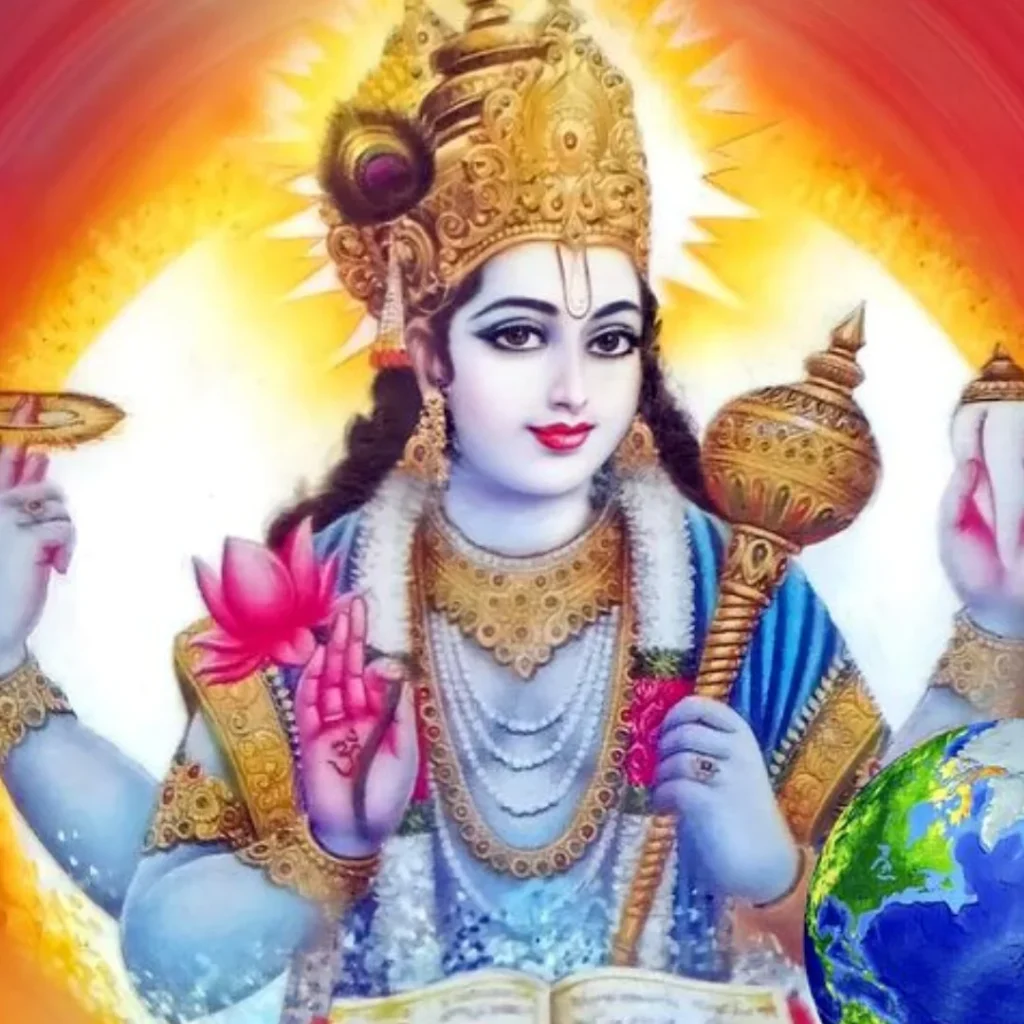
If Jiva is a drop, then Bhagawan is the ocean. Jiva is liable to be captivated by Maya, but having taken recourse to Bhakti Devi, he becomes free of transmigration. Jiva is the separated part and parcel of the Supreme Being, Vishnu. This being the case, the Jiva attains Bhakti Devi’s entitlement and has the option of striving for its emancipation through devotional practice.
When the Jiva is in the bound state, Maya dictates its actions. The knowledge that the Jiva possesses in this state is perverse and propelled by Sattva, Rajas and Tamas.
The Supreme Being creates the universe through His external potency of Maya but He still maintains. Sat Chit Ananda becomes his true identity and there is not an atom of change in Him. Neither Jiva nor Maya can Create or Procreate without the Supreme Being’s superintending.
Chanting the Holy Names of the Lord
The Descent or Avatar hood of the Supreme Being is non-material. When the Lord descends, he does so by His own sweet will, appearing with His spiritual body. There is no atom of difference between His body and his soul.
For the living entity, the body is material while the soul is spiritual. The Lord enters the Universe by dint of his Swarupa Shakti (स्वरूप शक्ति internal potency) while Karma forces man to take birth. One need not observe severe penances for purification of body and mind, based on prescriptions of Vedic texts in relation to the bygone Yugas.

Based on time, place and circumstances the Vedic scriptures have made provisions for body and mind purification for changing times. The Bhagavata Purana recommends the constant chanting of the holy name as the only resort for the Jiva of Kaliyuga. There is simply no other better means to salvage the fall in Kaliyuga.
As one takes to the chanting of the Holy name, offenses do not attack the devotee. The Lord’s name cleanses the heart and establishes Him in the heart, if the intention of the chanter is to become free of the implications of the material world, if he is eager, greedy enough to qualify himself to the Spiritual Abode.
Destruction and the Abode of Peace
Every man, down to the most downtrodden, has a right to the path of devotion. When man surrenders his entire mental and emotional weight on the Lord and ardently calls out to Him, through dedicated chanting, mercy from the Lord comes to him gradually and he attains the abode of peace, if his faith and dedication is unwavering.
Without the attainment of Truth, God, one is steadily heading towards distress and destruction. About this, there should be no doubt. It is to be understood that it is not because of lack of knowledge, but because of being devoid of unalloyed devotion to the Lord, that one gets recycled through the process of transmigration.
Please Like the Blog and Share it for Maximum Reach

